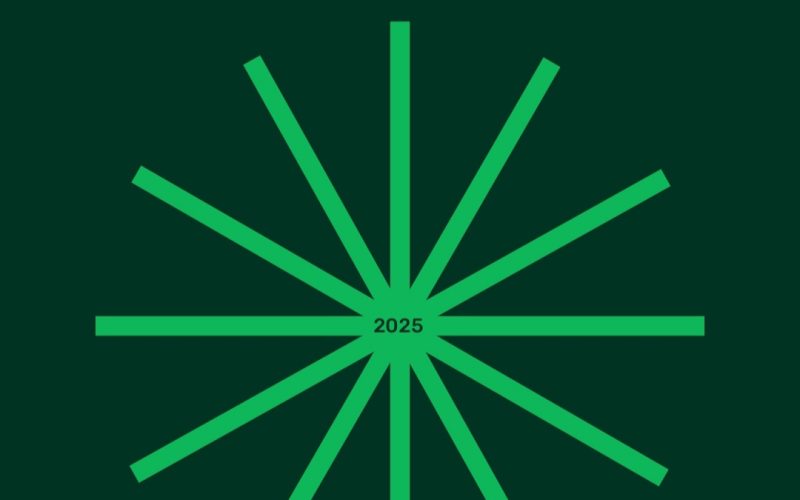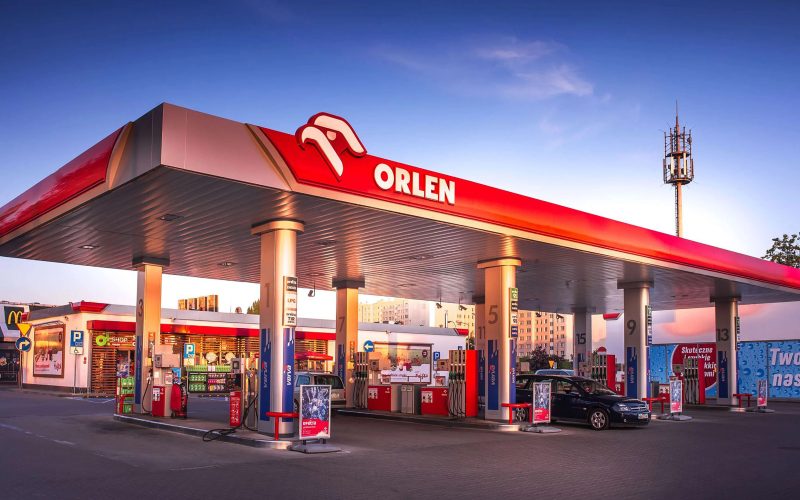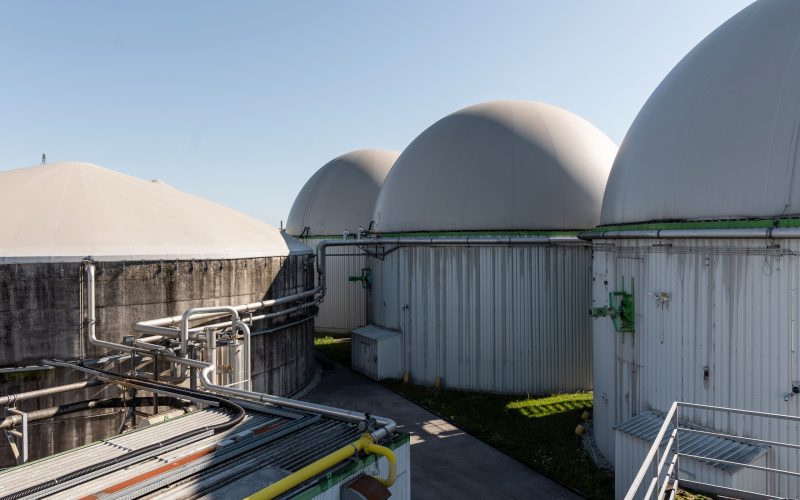New project: Technical Assistance for the Export of CBAM Goods from Ukraine to the EU
We are pleased to announce that Biomass-Carbon Ltd. in cooperation with the analytical centre DiXi Group started a new project “Technical Assistance for CBAM good exports from UA to EU”.
The purpose is to strengthen the export capacity of Ukrainian producers from sectors of the economy that currently export or plan to export goods to the European Union under the Carbon Border Adjustment Mechanism.
The expert support of domestic manufacturers of CBAM goods will improve Ukrainian export potential, which will contribute to the development of the domestic economy and increase its competitiveness in the conditions of climate change and the course for decarbonization.
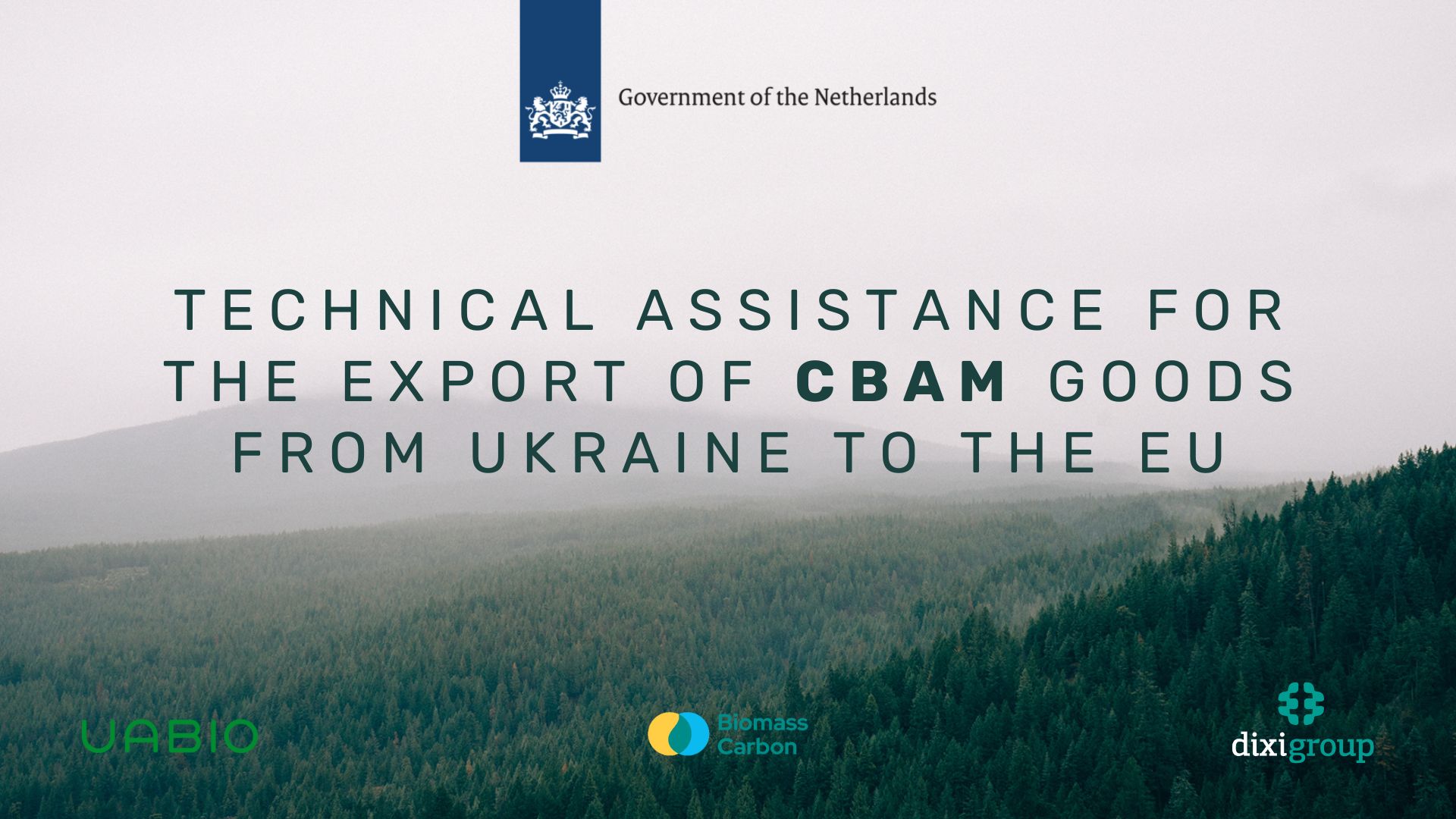
About the project
Within the framework of the project, three domestic manufacturers of CBAM goods from at least two Ukrainian export industries (iron and steel, cement, fertilisers and aluminium) will be selected, who will be provided with consulting assistance in:
- monitoring;
- determining the embedded emissions of manufactured goods;
- transferring data to accountable CBAM declarants;
- further exporting these goods to EU countries.
In addition, 3 CBAM guidance documents will be developed for all interested parties:
- general guidance documents for determining embedded emission;
- two specific guidance documents for individual industries.
Also, regular publications of current information about CBAM are planned on the websites of Biomass-Carbon and the Bioenergy Association of Ukraine, and some webinars will be held.
Background
On October 1, 2023, the European Union introduced a new environmental policy instrument, the Carbon Border Adjustment Mechanism (CBAM), designed to apply the same carbon costs to imported products as would installations operating in the EU.
From the beginning of the introduction until December 31, 2025, there is a transitional period during which the CBAM is applied without financial obligation to importers solely for the purpose of collecting data on goods covered by the CBAM. Currently, such goods are imported into the EU as part of the products of iron and steel, cement, aluminium industries, and some chemical industries (fertilisers and hydrogen), as well as electricity.
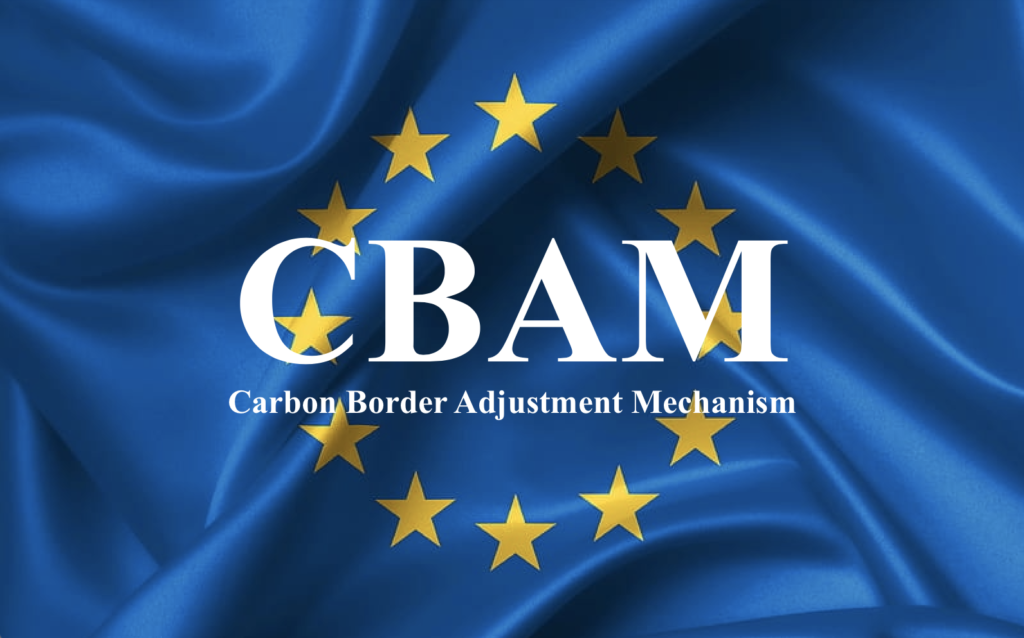
In particular, EU importers are required to report on embedded emissions of goods covered by CBAM. They include direct and indirect emissions of:
- carbon dioxide;
- nitrous oxide (for some fertilisers);
- perfluorocarbons (for some aluminium products);
- also includes precursor materials emissions.
In order to collect the necessary information for such reports, EU importers should contact the manufacturers of the goods with a corresponding request. Thus, Ukrainian producers of CBAM products who export or plan to export CBAM products to the EU should be ready to provide this data.
At the same time, from the third quarter of 2024, the use of default values for embedded emissions is limited, and therefore it is necessary to determine their actual values. The methodology for determining the embedded emissions of goods regulated by the CBAM mechanism is set out in the Implementing Regulation (EU) 2023/1773.
Ukrainian manufacturers of CBAM products for export to the EU should:
- as soon as possible develop documentation on the methodology of monitoring at their installation in accordance with the CBAM regulation;
- implement such monitoring to collect the necessary data and further determine the specific embedded emissions of their products.
By the end of the CBAM transitional period, the European Commission will conduct a full review of CBAM implementation, including expanding the list of goods subject to CBAM.
From January 1, 2026, the definitive period will start, during which financial obligations will be imposed on importers in the EU to purchase and submit CBAM certificates for embedded emissions from their imported goods
The payment will follow the approaches of the European Emissions Trading System (EU ETS). There will be a gradual reduction in obtaining free CBAM certificates over 10 years, and eventually, after 2035 no free certificates will be provided.
The project “Technical Assistance for CBAM good exports from UA to EU” began on November 25, 2024, and will last until February 28, 2026. This project is implemented with the support of the Ministry of Foreign Affairs of the Kingdom of the Netherlands and the Netherlands Enterprise Agency. Funding is provided by the Private Sector Development Program of the Netherlands Enterprise Agency/The Netherlands Enterprise Agency.
Contact person: Semen Drahniev (Biomass-Carbon Ltd.) — dragnev@secbiomass.com
